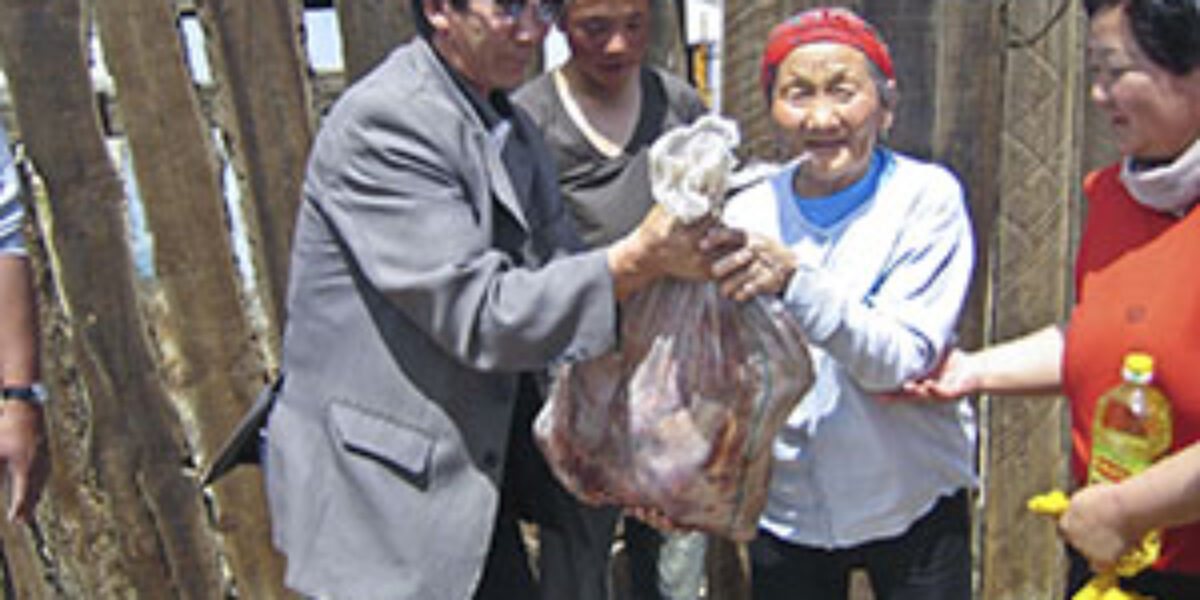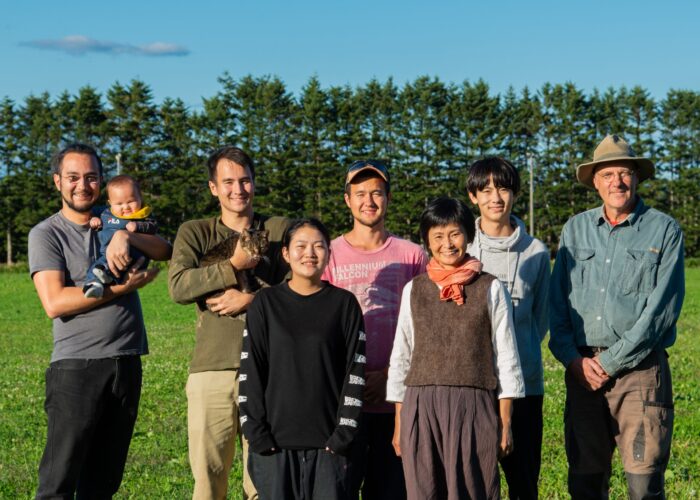BAYANKHONGOR, Mongolia (Mennonite Mission Network) – In the "Land of the Blue Sky," the sun shines 300 days each year, yet its rays bring little respite from the harsh Mongolian winters. During the coldest six months, the temperature averages zero degrees Fahrenheit causing many families to consume their food and fuel supplies by March – long before the mercury begins to creep upward.
Last year, Joint Christian Services – a consortium of mission agencies in Mongolia – initiated the Bayankhongor Winter Relief Project in cooperation with area churches and the provincial government. Through this project, families exchanged three-and-a-half days of work for a month’s supply of meat, flour, rice and vegetable oil.
The extreme cold reduces employment opportunities in mining, construction and herding – the main occupations in this area of the country – and leaves families without income at a time when heating fuel, warmer clothing and a higher caloric diet are necessary for survival. Susceptibility to illness increases as malnutrition takes its toll.
“Spring is often a dismal time of year,” said Laura Schlabach, who serves with JCS through Mennonite Mission Network.
One of the project’s worker-beneficiaries, Dulambazar*, has struggled to provide for her remaining family since a ger fire killed her husband and two of her children several years ago. Gers – traditional Mongolian homes – are round, portable dwellings built from wooden frames covered with layers of felt.
“The food assistance gave my family a boost during a difficult time,” Dulambazar said. “It is usually possible to find food in the summer because there aren’t so many other expenses. It begins to get more difficult after September 1 when the children go back to school. Then there are school fees and winter heating expenses.”
Two government social workers, a representative of the not-for-profit partnership team established by local churches, and Schlabach collected names of families who had depleted their food stores.
Volunteers, mostly church leaders, visited the potential worker-beneficiaries to confirm their need. These same volunteers later assisted with food distribution.
“This provided good exposure for the churches in the community,” Schlabach said. “Several reported new people coming to their churches as a result.”
Lhagvadulam was one of those who understood more fully who Christians are through the lived-out evidence of faith demonstrated by the relief project.
Though her mother was an active member and her four children sometimes attended, Lhagvadulam wanted nothing to do with the church – until she received the gift of food.
Lhagvadulam said she experienced God’s love for her and her family through the church leaders who visited her. She was so moved that she, in turn, offered to help with the distribution.
Now, Lhagvadulam goes to church regularly.
The project bought staple foods locally to minimize transportation costs. A favorable exchange rate between world currencies and the Mongolian tugrik at the time of purchase permitted aid to 30 more families than originally planned. Nearly 2,000 people in 380 families benefitted from a month supply of these staple foods.
Another phase of food distribution served 412 families living outside the city. In many areas, families spent the three-and-a-half work days cleaning up garbage in exchange for food. In one small town, however, beneficiaries helped draw and carry water for trees in the village square.
Mennonite Board of Missions, a predecessor agency of Mennonite Mission Network, joined eight other organizations to help found JCS in 1992. Today the consortium has fourteen member agencies with 70 workers from 21 countries. Six Mission Network personnel serve with JCS.
San Antonio (Tex.) Mennonite Church (Schlabach’s home congregation) and Mongolia Mission Partnership – a coalition of Ohio congregations, businesses and individuals – support Schlabach in development and relief ministry and as she relates to the growing Mongolian church. She was the first Mennonite mission worker in Mongolia and has served there since 1993.
* Many Mongolians go by a single name.




